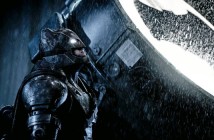
The opening film of the tenth edition of Japan Cuts: Festival of New Japanese Film is writer-director Okita Shuichi’s latest feature. Matsuda Ryuhei plays a thrash metal vocalist, and the film opens with a close-up of his face while from his throat emanate rough, growling sounds that may or may not be words. Matsuda is Eikichi, and his band is in the middle of a small yet energetic gig in a club. Okita shows the bare minimum of Eikichi’s life with his band, but with the following scene of the bandmembers sitting around quietly and thoughtfully after their gig, talking about making ends meet and the future, he clarifies succinctly that their band is not exactly on the road to success, let alone on a road to begin with. Part of this prologue is meeting Yuka (Maeda Atsuko), Eikichi’s live-in girlfriend, when he comes home to their apartment. The couple is based in Tokyo, eking out lives that correspond to their quirky personalities (she works in a nail salon). Following the formula that a change of scenery brings out character and drama, the couple then travels to Eikichi’s small hometown in Hiroshima, where their interactions with Eikichi’s parents Osamu (Emoto Akira) and Haruko (Motai Masako), younger brother Koji (Chiba Yudai), and his hometown community allow them to develop as individuals and family members distinct from the fluctuating lives they lead in Tokyo. As in several of his previous features — The Chef of South Polar (2009), The Woodsman and the Rain (2012), and Ecotherapy Getaway Holiday (2014) — Okita presents here a small-town community or group, whether it be near the South Pole, in the mountains, or here, by the sea. The film undeniably centers around Eikichi’s family, especially after Osamu collapses and is diagnosed with a terminal illness; even more specifically, the strained father-son relationship between Osamu and Eikichi, who had not been back home in seven years. At the same time, however, the film is also about the community that surrounds — or expands — the family, as it follows the latter’s day-to-day life changes/decisions with the progression of Osamu’s illness. Despite the sadness of the premise with Osamu’s illness, Okita presents its development in a de-dramatised way that ends up honouring all of his characters and their lives/decisions, flaws and all. In a sense, then, as in Okita’s aforementioned films, the main character is less Osamu or Eikichi and more the collective of individuals that comprise their community or group, thus demonstrating yet again how he excels in capturing group dynamics, from tensions to reconciliations as well as amusing idiosyncrasies, and the bonds that define that group regardless of difference.

The obvious bond is familial, not only in terms of Eikichi rekindling his ties with his parents after such a long absence but also the family embracing Yuka as one of their own with the news of her pregnancy and despite not being legally married to Eikichi. Among the film’s memorable scenes are those of father and son or mother and Yuka simply having a conversation, with the emotional bonds (re)emerging like vines crawling along a wall.
Another of those bonds, arguably the most prominent among them, is based on music. Osamu is the conductor of the town’s junior high school band. In fact, he is first introduced in the middle of conducting an outdoor concert with the band before Eikichi’s arrival. Even when he is temporarily hospitalised, Osamu continues to conduct from a rooftop and his students comply obediently and respectfully, however much they may not like performing old songs, gathering in a nearby rooftop with a cellphone as the mode of communication. At one notable point, Eikichi takes Osamu’s place as conductor and injects a more upbeat tempo to the songs, much to the students’ delight. Music is in fact an underlying link between father and son. Though Eikichi himself is a metalhead in terms of musical taste, his name is eventually revealed to be an unbreakable bond with his father: he was named after Osamu’s favourite artist, the real-life Hiroshima-based singer-songwriter Yazawa Eikichi, whose name Osamu utters frequently. In an amusingly touching scene later in the film, Eikichi even pays a kind of tribute to both his father and Yazawa.
The use of Yazawa as an emotional link is constitutive of the film’s emphasis on the local. Other such bonds are based precisely on the local. One is baseball, specifically the Hiroshima Toyo Carp baseball team, whose matches Osamu and Haruko watch intently throughout the film. Extending this bond of the local is Osamu’s doctor, whom he prefers over a specialist located in the mainland, and the overall hospital and town community. Significantly, Eikichi and Yuka have their marriage ceremony at the hospital. And though Koji leaves Hiroshima for an extended period of time, and even Eikichi and Yuka leave for Tokyo at film’s end, the film itself does not stray from the town once Eikichi and Yuka arrive early in the film. Concerning this last point, another of the film’s amusingly touching scenes is when Eikichi tries to track down the pizza that Osamu craves, associated with an earlier part of his life with Haruko. Eikichi ends up ordering deliveries from three different places, which are initially hard-pressed to trek all the way to the town — by ferry and by scooter — to deliver the pizzas. Yet three pizza delivery guys make the journey, even absurdly competing to get to the house first, and remain to witness Osamu finding the very same pizza that holds his memories.
Yet the film itself is not a sentimental, nostalgic trip to the past, least of all for Osamu or Eikichi; instead, it is an adamant confrontation of the present, living in it, even if (or particularly when) it stings.



